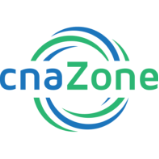Course Description
Food Safety
Course Summary
Foodborne illnesses are more widespread than people realize. They are defined as illnesses caused by the consumption of food or water contaminated by a microorganism such as bacteria, a virus, or a parasite. Foodborne illnesses are commonly referred to as food poisoning and they can have serious consequences, especially in certain more vulnerable population groups. The diagnosis of food poisoning is by exclusion and based on signs and symptoms and an ability to track when food and what type was eaten. The signs and symptoms of food poisoning are nonspecific in nature and are discussed. Treating food poisoning involves rest and fluids. There is no best fluid for treating food poisoning. It is most important for the food poisoned person to remain well hydrated. The majority of food poisoning incidents are caused by improper handling, preparation, and/or storage of food, which means that food poisoning is preventable if food is properly handled, prepared, and stored.
Course Objectives
- Describe foodborne illnesses and distinguish them from other medical conditions
- Understand the treatment options for food poisoning
- Identify the guidelines for the proper handling, preparation, and storage of food
Course Syllabus
- The Importance of Food Safety
- Common Features of Foodborne Illnesses
- Diagnosis of Food Poisoning
- Treatment for Food Poisoning
- Food Safety & Prevention
- Food Storage
- Freezing Foods and Thawing
- Case Study - Food Poisoning
Target Audience:
CNA
Credits:
1.0



